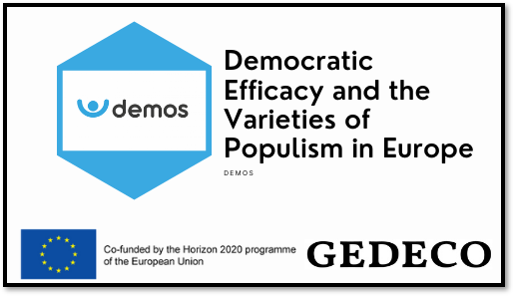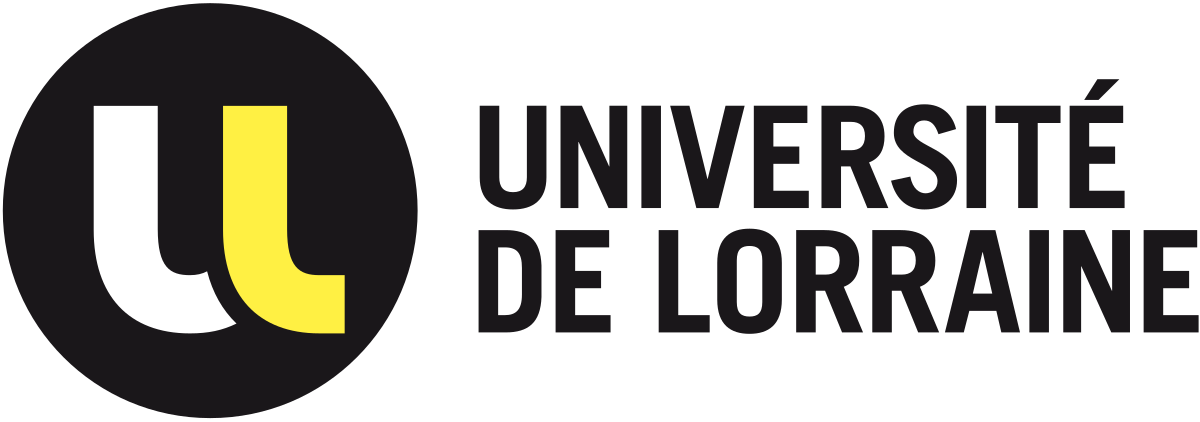
Democratic Efficacy and the Varieties of Populism in Europe’ — ‘DEMOS’
See the working paper on Populist Constitutionalism
See the information sheet from the European Commission
Grant Agreement number: 822590 — DEMOS — H2020-SC6-GOVERNANCE-2018-2019-2020/H2020-SC6-GOVERNANCE-2018.
DEMOS (Democratic Efficacy and the Varieties of Populism in Europe) is a research project aiming at better understanding populism. Funded by the EU Horizon 2020 Framework Programme, the project is carried out by 15 partner institutions in Europe and involves 10 disciplines. DEMOS investigates the phenomenon of populism through the lenses of democratic efficacy. The concept combines attitudinal features (political efficacy), political skills, knowledge, and democratic opportunity structures. The concept, a novelty, is understood as as a condition of political engagement needed to address the challenges of populism.
DEMOS addresses its hitherto under-researched aspects at micro-, meso-, and macro-levels: its socio-psychological roots, social actors’ responses to the populist challenge, and populism’s effects on governance. DEMOS focuses not only on the polity, but equally on citizens’ perspectives: how they are affected by, and how they react to, populism. Politically underrepresented groups and those targeted by populist politics are a particular focus. Examples include youth, women, and migrants.
As populism has varying socially embedded manifestations, DEMOS aims at contextualising it through comparative analysis on the variety of populisms across Europe, including their historical, cultural, and socioeconomic roots, manifestations, and impacts. DEMOS develops indicators and predictors of populism and elaborates scenarios on the interactions of populism with social actors and institutions both at the national and the EU levels.
DEMOS combines in-depth research on populism and democratic efficacy with action research and pilot projects in order to develop lasting tools and timely policy recommendations. Project methods include experiments, deliberative polling, text mining, surveys, and legal analysis. DEMOS places strong emphasis on communication and productive interactions with a variety of stakeholders throughout the project, including policymakers, journalists, students, and the general public.
Constitutional Law jurists from GEDECO:
Josep Maria Castellà Andreu
Marco Antonio Simonelli (Project Manager)
Núria González Campaña
Juan Alonso Tello Mendoza
| Funded by the EU Horizon 2020 Framework Programme, the DEMOS project is led by the Centre for Social Sciences, an Excellence Centre of the Hungarian Academy of Sciences, and is carried out in partnership with 15 institutions in Europe. |
| COORDINATOR | ||

Centre for Social Sciences, Centre of Excellence of the Hungarian Academy of Sciences
DEMOS Management Team Zsolt Boda, Project Leader Szabina Kerényi, Project Manager Beata Bozsó, Financial Manager Vinicius Gorczeski, Communications Manager
CSS Researchers Gabriella Szabó, Political Science Researcher Fruzsina Orosz, Legal Studies Researcher Attila Bartha, Political Science Researcher |
| CONSORTIUM : | ||
/uham-logo.png)
University of Hamburg Lydia Mechtenberg, Team Leader (Germany) |
/ECAS-logo.png)
European Citizen Action Service, Brussels Assya Kavrakova, Team Leader (Belgium) |
|
/Adam_Mickiewicz_University_in_Poznan-logo.jpg)
Adam Mickiewicz University, Poznan Artur Lipiński, Team Leader (Poland) |
/UNITO-logo.png)
University of Turin Giuliano Bobba, Team Leader (Italy) |
|
/kaunas_logo.png)
Kaunas University of Technology Eglė Butkevičienė, Team Leader (Lithuania) |
/GCU-logo.gif)
Glasgow Caledonian University Umut Korkut, Team Leader (UK) |
|
|
Hellenic Foundation for European & Foreign Policy Dimitri Sotiropoulos, Team Leader (Greece)
|
/UVA-logo.png)
University of Amsterdam Agneta Fischer, Team leader (Netherlands) |
|
/SCAMBA-logo.png)
School of Communication and Media, Bratislava Andrej Skolkay, Team Leader (Slovakia) |
/UCPH-logo.png)
University of Copenhagen Helle Krunke, Team Leader (Denmark) |
|
/cuni-logo.jpg)
Charles University, Prague Martin Mejstřík, Team Leader (Czech Republic) |
/UB-logo.png)
University of Barcelona Jose Maria Castella Andreu, Team Leader (Spain) |
|
/PEM-logo.png)
University for Business Engineering and Management Dragan Mitrović, Bosnia and Herzegovina |

University of Lorraine Nicolas Hubé, Team Leader (France) |

/ELIAMEP-logo2.jpg)